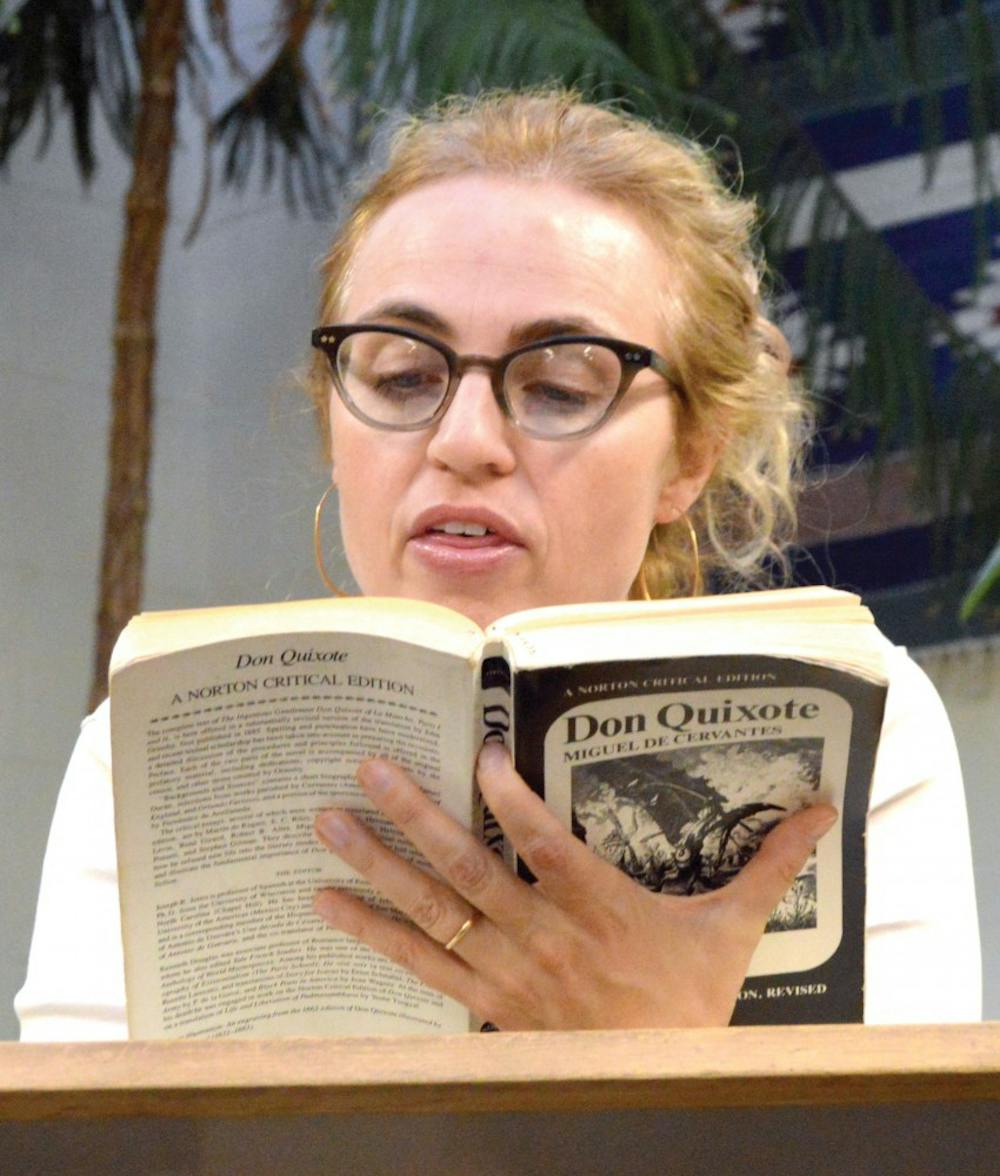The Department of Spanish and Portuguese, in collaboration with the Latin American and Iberian Institute, is holding readings of the renowned Spanish novel “Don Quixote”, which celebrates its fourth centennial anniversary this year.
Anthony Cardenas, professor and chair of the Department of Spanish and Portuguese, as well as a volunteer participating in the reading of “Don Quixote”, said he encourages students to attend the readings of one of the best-selling novels of all time.
“I feel everyone should attend the reading, and the reason for that is it’s one of the greatest works ever written,” Cardenas said. “It is full of joy, full of life. Just brilliant.”
The readings will take place every day this week in Ortega Hall’s room 335 in Spanish, and at the third floor lounge in Ortega Hall in English between noon and 8 p.m.
In addition to the reading, on Friday from 3:30 to 5 p.m. there will be guest speakers taking part in the Symposium of “Don Quixote”.
Professor Tatevik Gyulamiryan from Hope College will be presenting the discussion “Toward a Poetics of Re-accentuation: The Image of Don Quixote in European and American Novels” at the SUB. Prof. Isabel Jaén-Portillo of the University of Portland will be discussing “Emotion and Human Development in Cervantes’ Don Quixote: The Case of Sancho Panza” at the Santa Anna A & B room of the SUB.
Cardenas said “Don Quixote” is a parody of a genre centered around knighthood and fantasy that was very popular at the time it was released.
“There were all kinds of books about different knights that publishers would produce to make sales,” he said. “There are all kinds of dwarfs, kings, magic rings, giants — magic everywhere.”
Cardenas said “Don Quixote” is about the titular character having such an engrossing obsession with becoming a knight like those in the fiction novels he reads that he becomes caught up in his delusions and eventually dies from them.
Alicia Gomez, a graduate Spanish linguistics student and attendee of Tuesday’s English reading, said the novel’s messages and satire are timeless.
“Four hundred years later it is still funny, it’s still the same jokes, the same things that are humorous to him and the same ideas that people had at that time are going on today,” Gomez said. “There is nothing that he experienced or knew about you wouldn’t see in the headlines today, and he’s eternal in that way and that his observations will be the same in another hundred years.”
Gomez added the celebration is all the more meaningful due to the possible recent discovery of the remains of Miguel de Cervantes, the novel’s author.
Get content from The Daily Lobo delivered to your inbox
According to National Geographic, researchers in Spain announced Tuesday that they believe they have discovered the 400-year-old remains of the Spanish novelist beneath Madrid’s Convent of the Barefoot Trinitarians.
“[This story] is very relevant because it makes it a lot more real,” Gomez said.
To add on to the relevance, Restless Books released a 400th Anniversary Edition on Oct. 6.
“We have done nothing but revive ‘Don Quixote’ in a number of different movies and plays,” said Ilan Stavans, Amherst College professor and publisher of the new English language translation of the novel, to NBC news. “So we have stolen ‘Don Quixote’ from Cervantes and we keep on reinventing him because there is so much of who we are in him, and we have to keep him alive.”
Stavans will present the 400th anniversary translation of the novel at the Texas Book Festival on Oct. 17, and at other events worldwide, according to NBC News.
Cardenas said a part of Don Quixote’s persona lives in everyone, no matter what century it is.
“There is a bit of Don Quixote in all of us,” he said. “(He teaches us) how to be observant, how to enjoy life, how to get by on the veil of tears and how to not take things so seriously.”
Denicia Aragon is a freelance reporter for the Daily Lobo. She can be reached at news@dailylobo.com or on Twitter @DailyLobo






